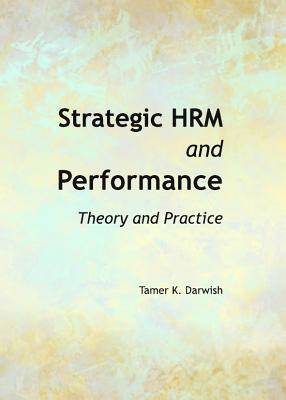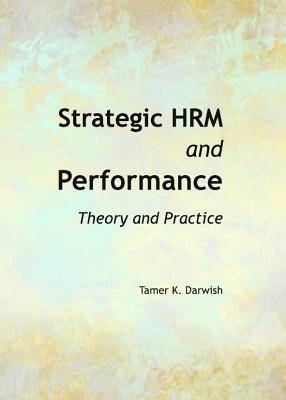
- Afhalen na 1 uur in een winkel met voorraad
- Gratis thuislevering in België vanaf € 30
- Ruim aanbod met 7 miljoen producten
- Afhalen na 1 uur in een winkel met voorraad
- Gratis thuislevering in België vanaf € 30
- Ruim aanbod met 7 miljoen producten
Zoeken
€ 115,45
+ 230 punten
Omschrijving
The purpose of this book is to contribute to the understanding of the debate surrounding strategic human resource management (SHRM) and organisational performance. The relationship between SHRM and organisational performance has been a heavily deliberated issue over the last decade. A survey of literature on SHRM and its impacts in terms of performance reveals that empirical results on this topic are, as yet, inconclusive. Whilst some studies have found the impact to be positive, the results from several other studies cast doubts concerning the overall efficacy of (positive) HR practices on firms' performance. This book critically discusses the theoretical and empirical aspects of the relationship between strategic HRM and organisational performance. Ostensibly, when compared to earlier forms of people management, the essence of HRM was a closer alignment of the procedures and processes concerned with work and employment relationships to overall organisational objectives. Much of the HRM literature holds that specific HRM practices are likely to serve as a major source of competitive advantage. This belief has led to research into the link between HRM and performance. However, somewhat less clear is what specific HR practices are most likely to enhance performance, and, indeed, how performance may best be measured. This book, accordingly, seeks to explore which HR practices are most closely associated with better organisational performance according to subjective and objective measures. It also seeks to shed new light on the relationship between subjective and objective measures of organisational performance, and the relative reliability of the former in assessing the effectiveness of specific HR practices. The book also explores other important HR issues such as the role of the HR director, strategic HR involvement, and HR devolvement. Moreover, it has been argued that it is an interrelated system of HR practices or HR complementarities that enhance performance, with one practice encountered on its own not having the same result as when encountered in combination with others. This particular issue is also discussed in depth in this book.
Specificaties
Betrokkenen
- Auteur(s):
- Uitgeverij:
Inhoud
- Aantal bladzijden:
- 101
- Taal:
- Engels
Eigenschappen
- Productcode (EAN):
- 9781443847292
- Verschijningsdatum:
- 1/06/2013
- Uitvoering:
- Hardcover
- Formaat:
- Genaaid
- Afmetingen:
- 147 mm x 208 mm
- Gewicht:
- 299 g

Alleen bij Standaard Boekhandel
+ 230 punten op je klantenkaart van Standaard Boekhandel
Beoordelingen
We publiceren alleen reviews die voldoen aan de voorwaarden voor reviews. Bekijk onze voorwaarden voor reviews.








